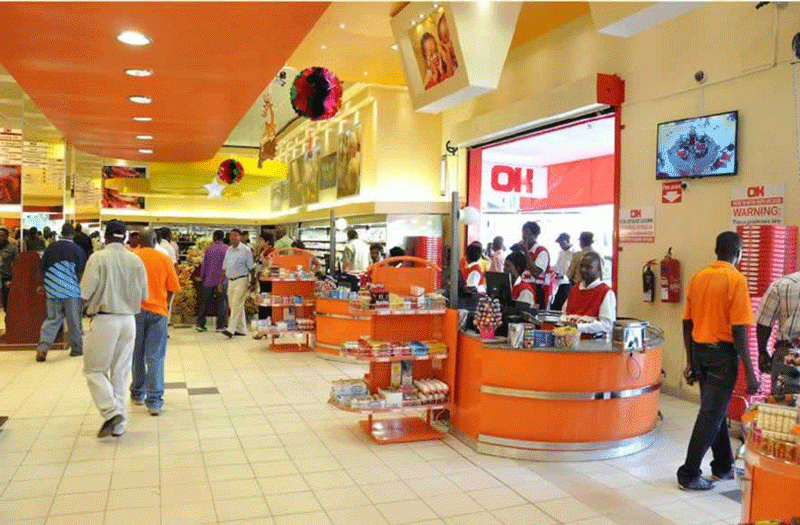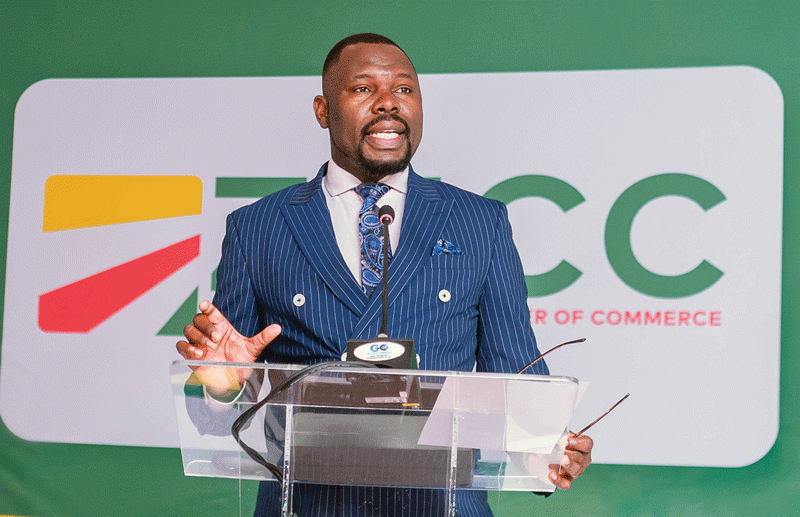
HUMAN dignity is a fundamental concept that underpins humanistic management, seeking to ensure that individuals are treated with respect and valued within organisations.
The significance of dignity in the workplace has gained increasing recognition, particularly as businesses globally are re-evaluating their roles and responsibilities towards employees, customers, and society at large.
In Zimbabwe, where economic challenges and social inequalities persist, fostering a culture of dignity in organisations can play a critical role in improving employee well-being, enhancing productivity, and driving sustainable development.
This article explores the use of the 24-item dignity scale developed by Michael Pirson and his colleagues as a tool to measure human dignity at both individual and organisational levels, examining its relevance and application in Zimbabwean organisations.
Overview of the 24-item dignity scale
The dignity scale, created by Pirson and other researchers, provides a structured way of measuring human dignity in the workplace. It comprises 24 items divided across different dimensions, including respect, autonomy, inclusion, and the availability of resources.
These dimensions collectively capture the essential elements of how dignity can be supported or undermined within an organisation. The scale serves as both a diagnostic tool and a guide for organisations seeking to understand their impact on employee dignity and identify areas for improvement.
Applying this scale can help Zimbabwean organisations assess how well they uphold human dignity, which is vital in a context where economic constraints can often lead to exploitative labour practices, lack of recognition, and poor working conditions.
- Public Relations: Artificial intelligence: How technology is transforming PR
- ChatGPT: AI revolution that could change the face of Zim’s economy
- Google is freaking out about ChatGPT
- ChatGPT passes law school exams despite 'mediocre' performance
Keep Reading
By systematically evaluating factors, such as employees' perceptions of respect, opportunities for participation in decision-making, and access to resources, businesses can gain insights into how to create a more human-centred workplace culture.
Respect: A cornerstone of dignity
Respect is one of the central dimensions of the dignity scale, representing the fundamental need for individuals to be valued for who they are and what they contribute.
In Zimbabwe, where cultural norms often emphasise hierarchy, there is a risk that some employees, particularly those in lower-ranking positions, may feel undervalued or overlooked.
To counteract this, organisations can use the dignity scale to assess whether respect is adequately integrated into their corporate culture and policies.
For example, organisations could review how they handle grievances, manage performance reviews, and recognise achievements across all levels. Promoting respect can lead to a more motivated workforce, with employees feeling appreciated regardless of their position.
An example can be drawn from the local mining sector. In some mining companies, workers have often reported poor treatment and dangerous working conditions.
The dignity scale could be applied here to measure employees’ experiences of respect in the workplace and identify areas where interventions are necessary. By instituting measures that actively promote respect, such as safety protocols, fair remuneration, and recognition programmes, mining companies can improve workers' morale and engagement.
Autonomy: empowering employees
Autonomy involves providing employees with the freedom to make decisions related to their work, thereby giving them a sense of ownership and responsibility. The dignity scale evaluates how well organisations foster an environment where employees can exercise autonomy in their roles.
In Zimbabwean organisations, however, there is often a tendency towards micromanagement, which can stifle innovation and limit personal development.
By measuring the level of autonomy experienced by employees, organisations can identify whether existing management practices inhibit or encourage independence. For instance, a local manufacturing company could assess how much decision-making power line workers have concerning their tasks.
Findings might reveal that empowering workers to suggest process improvements can boost productivity and workplace satisfaction.
Efforts to increase employee autonomy can also be linked to broader organisational goals, such as adapting to market changes or pursuing continuous improvement initiatives. When employees are trusted to take on responsibilities and make decisions, they become more committed to the organisation’s success.
Ensuring equal participation
Another dimension of the dignity scale focuses on inclusion, which relates to the extent to which employees feel they belong and are valued members of the organisation. In Zimbabwe, inclusion is particularly significant given the diverse cultural backgrounds and the economic disparities that exist.
Ensuring that all employees, regardless of their socio-economic status, gender, or background, are included in decision-making processes can contribute to a more equitable and harmonious workplace.
Using the dignity scale, organisations can assess whether all employees feel included in important discussions and whether opportunities for career advancement are available to everyone.
In some Zimbabwean companies, certain groups may be underrepresented in leadership roles, which can perpetuate a sense of exclusion. By measuring these aspects, companies can implement targeted interventions to promote diversity and equal opportunities.
For example, a financial institution in Harare could assess the representation of women and individuals from marginalised communities in its senior management. If the results indicate a lack of diversity, the organisation might consider mentorship programmes, inclusive hiring practices, and leadership development initiatives to address the imbalance.
Resource availability
Access to resources is an essential element for sustaining dignity in the workplace. Resources can include physical necessities, such as safety equipment and facilities, as well as non-tangible assets, like training and development opportunities.
In the Zimbabwean context, economic constraints mean that some organisations may struggle to provide adequate resources for their employees. The dignity scale can help identify gaps where the lack of resources undermines workers’ sense of dignity.
For example, in some educational institutions, teachers may face a shortage of teaching materials and inadequate facilities, which hampers their ability to deliver quality education.
By using the dignity scale to measure the impact of resource limitations on teachers’ dignity, school administrators can advocate for better funding and support from government bodies or private donors.
Additionally, organisations can seek alternative strategies, such as resource-sharing partnerships, to address these challenges.
Implementing the dignity scale
For Zimbabwean organisations to benefit from using the dignity scale, they should consider the following practical steps:
Conduct baseline assessments: Start by conducting an initial assessment using the dignity scale to establish a baseline understanding of employees' experiences. This will help organisations identify specific areas that require immediate attention.
Engage employees in the process: Involve employees in discussions about dignity at work, encouraging them to share their experiences and suggestions for improvement. This participatory approach can help build a culture of trust and shared responsibility.
Set measurable targets: Develop clear, measurable goals for improving dignity-related outcomes, such as increasing employee autonomy or enhancing inclusion. Progress should be tracked regularly, with feedback mechanisms in place to make adjustments where needed.
Invest in training and development: Provide managers and employees with training on humanistic management principles and how to apply them in daily operations. This could include workshops on respectful communication, inclusive leadership, and ethical decision-making.
Monitor and report progress: Regularly review the impact of dignity-related initiatives, using data collected from the dignity scale. Sharing results with employees can foster transparency and demonstrate the organisation's commitment to continuous improvement.
Conclusion
The dignity scale provides a valuable tool for organisations seeking to uphold human dignity in the workplace, offering a structured approach to measuring and improving conditions for employees.
In Zimbabwe, where economic challenges can impact workers’ experiences, applying the scale can help organisations identify areas for intervention and foster a more human-centred approach to management.
By focusing on dimensions such as respect, autonomy, inclusion, and resource availability, companies can not only improve employee well-being but also contribute to broader social and economic development goals.
As Zimbabwe continues to evolve, prioritising dignity in organisational practices will be essential for creating sustainable and resilient businesses that value their people.
Acknowledgment: The article has been improved with the assistance of ChatGPT and refined using Grammarly.
- Future articles will explore humanistic management, human dignity, and the promotion of social responsibility in Society 5.0. Case studies of organisations prioritising social responsibility, employee welfare, and environmental sustainability will be examined to highlight the benefits of a humanistic approach in the Zimbabwean context.Jongwe is an experienced business consultant with extensive expertise across various industries in Southern Africa, including higher education- WhatsApp at +27 824083661/+263 788016938 or by email at consultgws@gmail.com.
- Mabhachi is a freelance journalist and mobile communications and dynamic spectrum access Activist. — medatechzim@gmail.com.










